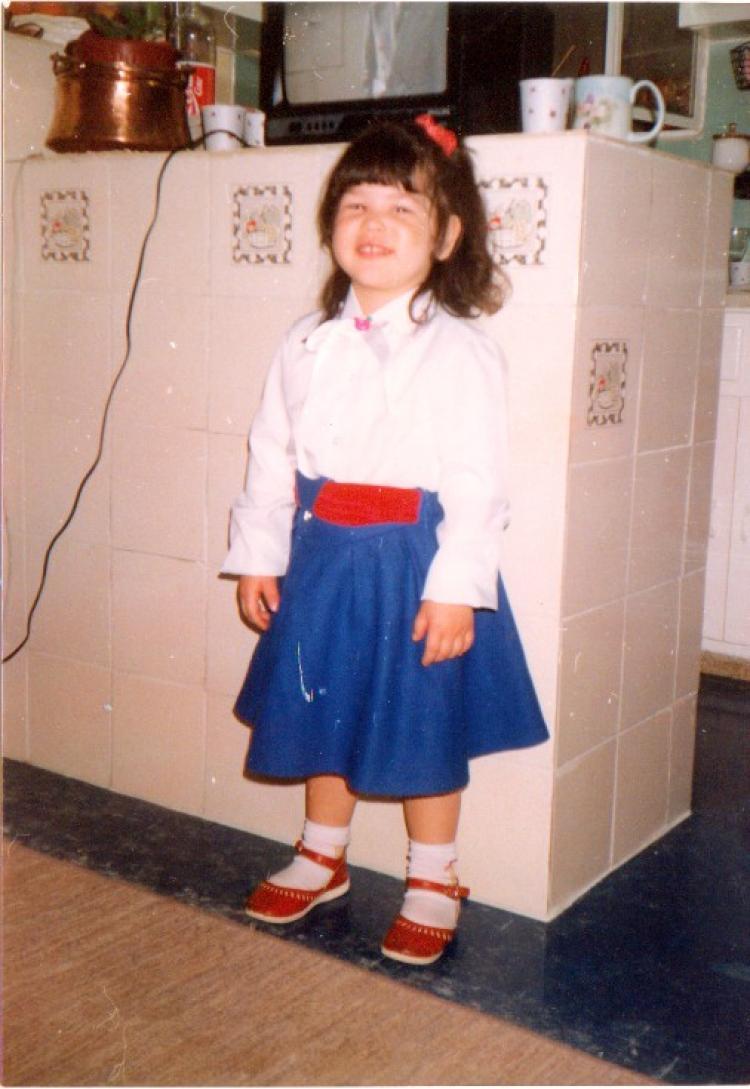I have always remembered the sounds in my house: sounds from the languages of different nations, and different accents. My mother is Brazilian, my father Greek. During my parents’ conversations at home, I could tell by the way they spoke to each other how they differed in perspective.
It was fun to hear their accents. And the way each one of them had to speak in the other’s language or maybe in their common language, English, was incredibly unique. These sounds taught me unconsciously to distinguish the cultures, sounds, characteristics, and national identities I came in contact with. I could distinguish people and their habits, and also some nations’ habits, by hearing just a language or the tones the speakers made with their voices, or seeing how they reacted to issues.
These sounds brought me up in the “land of polyglotism.” I always treated the ability to speak more than two languages as a blessing because knowing multiple languages from a young age helped me to learn more languages easier and faster.
In my house, one could hear four different languages: Greek, Portuguese, English, and Spanish. They all have something common—the Greek root. Latin-based languages share a root with the Greek language. In languages that stem from Latin, such as French, Italian, Portuguese, Spanish, and Romanian, I could very easily hear a Greek tune in them.
Choosing One Tongue
I remember my fanatic Greek grandfather saying to me when I was young, “You are Greek and you should speak only Greek.” So every time my mother spoke to me in Portuguese, I replied, “I don’t want to speak Portuguese because I am Greek.” She obliged and proceeded to speak Portuguese only with my sister.
Then, one day I heard them speaking and I couldn’t understand what they said, so I asked my mother what they were saying. She replied, “You said you don’t want to learn Portuguese. If you want to understand, go find out for yourself what we said.”
And this is what I did. At the age of 6, I began studying my mother’s Portuguese university books for fun. Of course, when my mother saw my efforts, she helped me.
Bridging the Gap
As a Greek, my father didn’t speak enough Portuguese, and my Brazilian mother spoke no Greek. That’s why they had to speak in English, their common language. Thus, I learned English at a young age.
A nation’s language plays a large part in informing its culture. Greek and Latin languages sound quite harmonious. In the structure of those languages, I hear a great deal of logic and also respect for beauty and time.
Characteristics that one can hear in a language can also be found in its speakers. I remember my relatives waxing sentimental and overreacting over trifles. When they got nervous, they got very nervous; and when they were happy, they were very happy. When they got mad over something, they got very mad; and when they liked something, they liked it very much. When they spoke, they spoke very loudly and with much emotion, regardless of the topic.
Later, as I began working in the tourism industry, I understood that my relatives weren’t the only ones who acted this way and that being emotive is simply a feature of their cultures.
I have always asked myself why I was blessed with a multilingual upbringing. I later understood that it is a gift, one that I could use in many countries for many reasons. It’s a peculiar feeling when I speak with strangers in their language. It’s as if I know them, though in reality they are just passersby.






